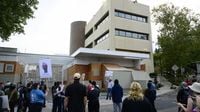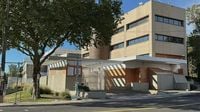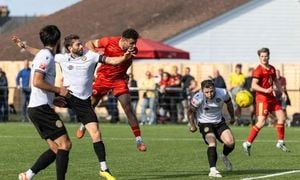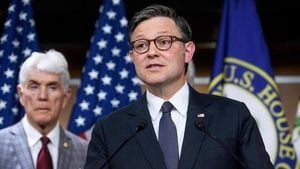Armed, camouflaged, and masked federal agents have become an unsettling sight in some of America’s largest cities this week, as the Trump administration’s sweeping law enforcement surge intensifies. Chicago, Portland, and Memphis are at the center of a growing national debate over the use of federal troops and agents in urban areas, with critics warning of civil rights violations and government overreach, while the administration insists the moves are necessary to combat crime and protect federal property.
In Chicago, frustration and fear spread quickly after dozens of border patrol agents were seen making arrests near iconic downtown landmarks—including the Cloud Gate sculpture, better known as The Bean, and along Michigan Avenue—over the weekend of September 27-28, 2025. According to CBC, the agents’ presence, coupled with aggressive tactics like using boats on the Chicago River and marching through upscale neighborhoods, left residents and local leaders alarmed. "It looks un-American," said Chicago Alderman Brandon Reilly, who represents the city’s downtown. He dismissed the spectacle as a "photo op" for President Donald Trump, a sentiment echoed by other officials.
The anxiety only deepened on September 29, when Illinois Governor JB Pritzker announced that the federal government appeared poised to deploy 100 National Guard troops to Chicago to protect Immigration and Customs Enforcement (ICE) personnel and facilities. Pritzker, a Democrat, said the Illinois National Guard had received word from the Department of Homeland Security (DHS) that a formal request for troops had gone to the Defense Department. "This is an attack on neighborhoods, on lawful residents, on U.S. citizens," Pritzker declared at a news conference, as reported by NPR. "That's not preventing crime as Donald Trump claims, that's threatening public safety."
Chicago’s recent experience with federal enforcement has been especially fraught. Activists and community leaders have raised the alarm about racial profiling, particularly after the U.S. Supreme Court lifted restrictions on roving patrols, which now allow immigration agents to stop people based on race, language, job, or location. As CBC reported, Pritzker described the city’s downtown Loop as a place where "ICE is running around... harassing people for not being white." One activist, Veronica Castro of the Illinois Coalition for Immigrant and Refugee Rights, called the downtown operation "a major escalation by the Trump administration," citing reports that a Latino family of four was detained near The Bean on September 28. Construction workers and bicyclists were also reportedly targeted.
Federal officials, for their part, defended their approach. Border patrol agent Gregory Bovino told the Chicago Sun-Times that agents would pursue "anyone who is here illegally," relying on a mix of intelligence and "the particular characteristics of an individual, how they look." The Department of Homeland Security did not respond to media requests for comment, according to the Associated Press.
The city’s reaction has been a mix of outrage, activism, and a palpable sense of unease. As border patrol agents marched through downtown, some onlookers voiced support, but many more—like Shirley Zuniga, a 24-year-old U.S.-born daughter of Honduran immigrants—joined spontaneous protests. "This is much more important to me," Zuniga said, describing how she abandoned her birthday celebration to confront the agents. "I'm celebrating my people."
Chicago is not alone in confronting the federal surge. In Portland, Oregon, the tension has spilled into the courts. On September 29, Democratic Attorney General Dan Rayfield filed a motion in federal court to temporarily block the Trump administration’s deployment of 200 National Guard troops, who are set to be placed under federal control for 60 days. The move follows a Defense Department memo and comes amid ongoing protests at the ICE building just outside downtown Portland—a flashpoint for nightly demonstrations that peaked in June and have continued, albeit at a smaller scale, since then. On September 28, a large protest drew thousands, and two people were arrested for assault, police told CBC.
Portland’s leaders, including Mayor Keith Wilson and Governor Tina Kotek, have vehemently opposed the deployment. "Putting our own military on our streets is an abuse of power and a disservice to our communities and our service members," Rayfield said in a statement reported by CBC. The building manager of a nearby affordable housing complex described the "impacts of violent tactics, including tear gas and late-night altercations," as traumatizing for residents, especially veterans. "Sending federal troops will only escalate the situation. The last thing we need is an escalation," said Reach Community Development, the organization managing the building.
The legal battle in Portland is just one front in a broader challenge to the administration’s use of federal troops. State and city leaders in Washington, D.C., and California have also filed lawsuits, arguing that the deployments represent an unlawful overreach of presidential authority, NPR reported.
Meanwhile, in Memphis, Tennessee, the situation is tense but quieter—for now. The city is preparing for a federal law enforcement surge ordered by President Trump to fight crime, but as of September 30, there have been no large-scale operations reported. Tennessee Governor Bill Lee, a Republican, said agents from 13 federal agencies—including the FBI, Drug Enforcement Administration, and Bureau of Alcohol, Tobacco, Firearms and Explosives—would arrive in support roles, serving as "extra eyes and ears" for local law enforcement. The number of National Guard members to be deployed has not been disclosed, but the city government’s website clarified that Guard troops would not be making arrests.
Memphis has struggled with high violent crime rates in recent years, including carjackings and homicides, though both Democratic and Republican officials acknowledge that 2025 has brought decreases in some categories. Still, many residents—especially Latinos—worry that the presence of federal troops and the National Guard will have a chilling effect on community trust. "We know the presence of the National Guard will lead to our neighbours being afraid to seek help when they need medical care, need to report crimes, or require social services, because of this military presence," said Sandra Pita, a community organizer, to CBC.
In all three cities, the federal surge has sparked outrage from Democratic leaders and civil rights groups, who accuse the administration of using law enforcement as a political tool and targeting communities of color. Supporters of the deployments, meanwhile, argue that federal intervention is necessary to restore order and protect federal assets amid ongoing protests and crime.
The debate has exposed deep divisions over the balance between security and civil liberties, the role of federal power in local affairs, and the limits of presidential authority. With legal challenges mounting and tensions rising on the streets, the coming weeks are likely to test not just the relationships between cities and Washington, but the very fabric of American democracy itself.





